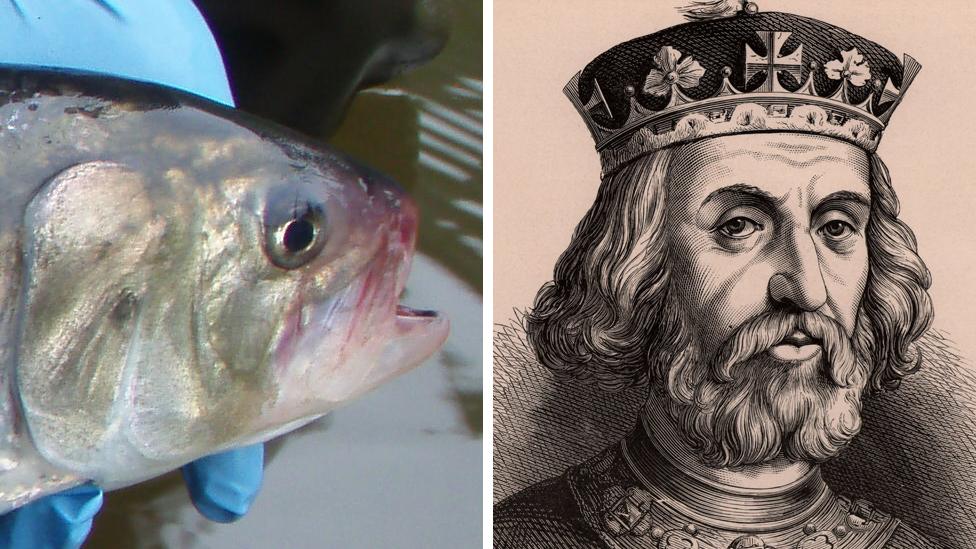'Largest river restoration' work begins in Worcestershire
- Published
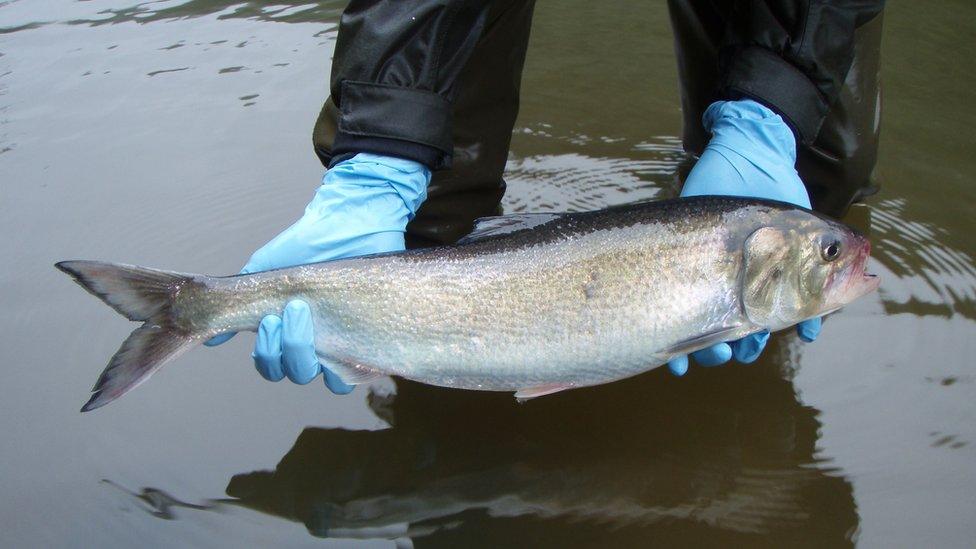
Shad and other species disappeared from the River Severn after weirs were installed
Final preparations are taking place to begin the largest river restoration project in Europe.
The £20m scheme aims to reopen more than 150 miles of the River Severn, making it easier for endangered fish to reach their spawning grounds.
The Environment Agency wants to reintroduce shad to the river, said to be one of King Henry III's favourite fish.
Many species vanished after weirs were installed as they prevented migration.
The project will also see England's only fish viewing gallery built at Diglis Weir in Worcester.
Four fish passes will be installed which will allow fish to travel past the blockages, in Worcestershire; open up the River Teme to fish at two locations near Worcester; and improve access at a weir on the Severn near Tewkesbury.
It is hoped the work will help to secure the long-term future of many of the UK's declining and protected fish species, particularly the locally-threatened twaite and allis shad which hundreds of years ago were a staple food in the court of Henry III.
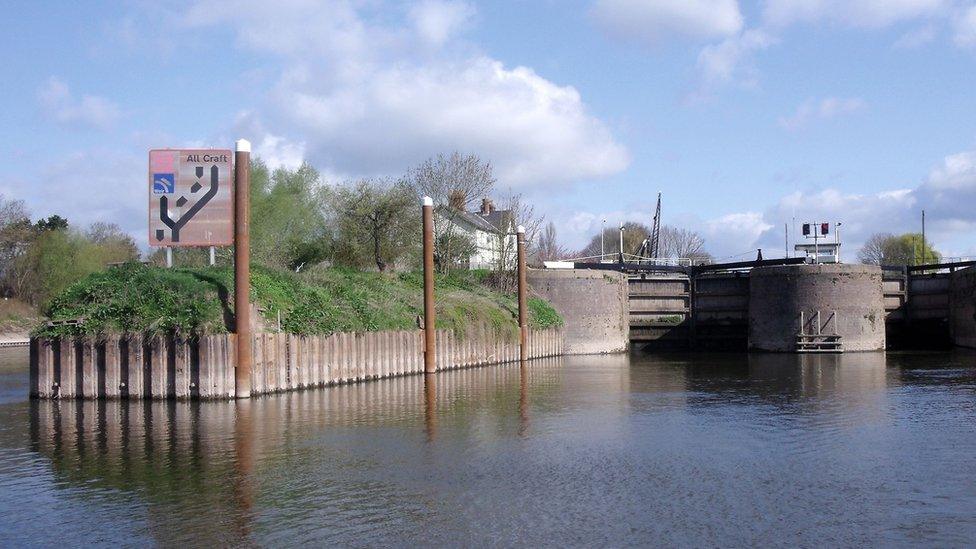
England's only fish viewing gallery will be installed at Diglis Weir in Worcester
The work, including the removal of some trees along the river, is starting in February.
Jason Leach, programme director, said: "We're delighted to be starting work in Diglis and Bevere on what is a once in a lifetime project that will bring major environmental benefits to the river and the species that can thrive here."
The £19.4m funding includes £10.8m from the Heritage Lottery Fund and £6m from the European Commission.
The Environment Agency, the Canal and Rivers Trust, Natural England and the Severns River Trust are all involved in the programme.

Follow BBC West Midlands on Facebook, external, on Twitter, external, and sign up for local news updates direct to your phone, external.
- Published17 July 2018
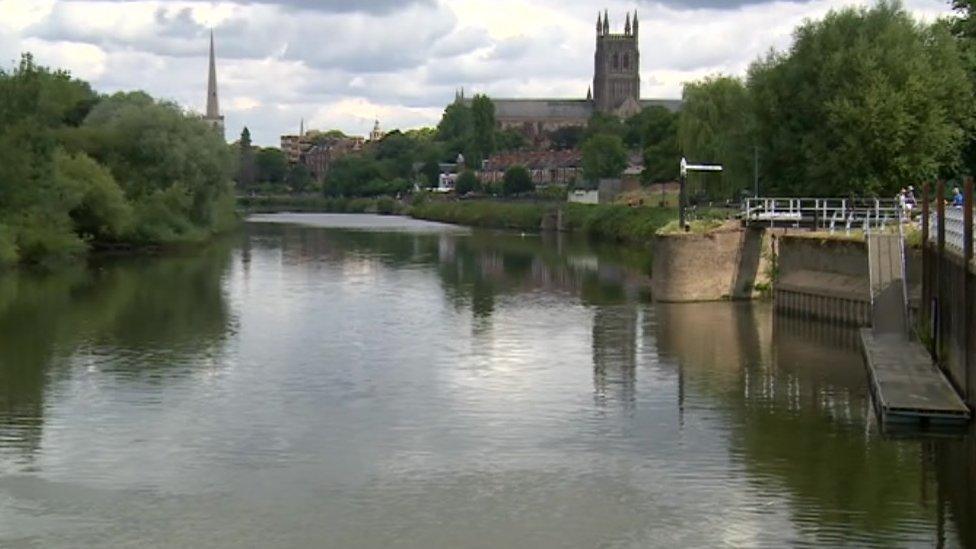
- Published30 May 2017
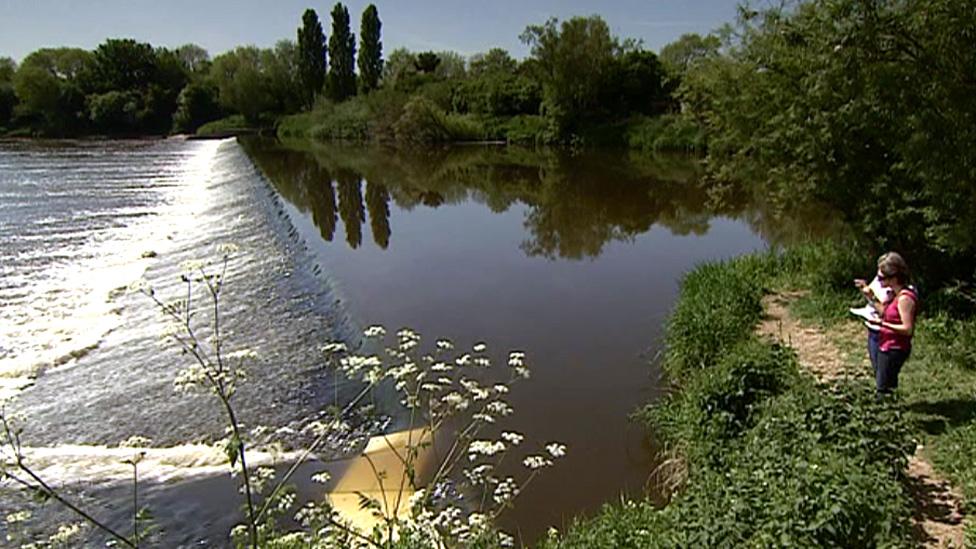
- Published27 October 2016
